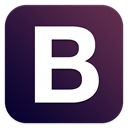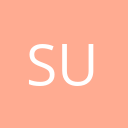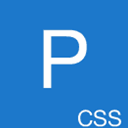Uncovering the Best Material-UI Alternatives for Your Next Project
Material-UI is a phenomenal React component library, deeply rooted in Google's Material Design guidelines. It offers a robust and elegant solution for building beautiful and functional user interfaces. However, for various reasons—be it specific project requirements, design philosophy preferences, or the desire for different feature sets—developers often seek out powerful Material-UI alternative options. While Material-UI excels at providing low-level tools and customization, sometimes a different approach or a simpler framework is precisely what's needed. This article delves into some of the top contenders that can serve as excellent substitutes for your UI development needs.
Top Material-UI Alternatives
Whether you're looking for a different design aesthetic, a more lightweight option, or a broader set of pre-built components, these alternatives offer compelling reasons to consider them for your next web application.

Bootstrap
Bootstrap is a widely adopted open-source collection of tools for creating browser sites and applications. As a Material-UI alternative, it offers HTML and CSS-based design templates for typography, forms, buttons, navigation, and other interface components, along with optional JavaScript extensions. It's a free, open-source, and self-hosted platform with features like responsive design, active development, clean design, extensive documentation, and premade templates, making it highly versatile for various web projects.

Semantic UI
Semantic UI aims to empower designers and developers by creating a shared vocabulary for UI development. This free, open-source web platform offers a unique approach to front-end development, focusing on human-friendly HTML. It's a strong Material-UI alternative for those seeking a highly semantic and intuitive framework, with responsive design as a core feature, making it easy to create adaptive layouts.

Foundation
Foundation is an easy-to-use, powerful, and flexible framework for building rapid prototypes and production code on any kind of device. As a free, open-source web-based CSS framework, it serves as an excellent Material-UI alternative for developers who prioritize flexibility and a robust set of tools for responsive design without being tied to a specific design language. Its focus on being a comprehensive CSS framework allows for significant customization.

Materialize
Materialize is a modern responsive CSS framework based on Material Design by Google. For those who appreciate the Material Design aesthetic but want a different implementation or a more traditional CSS framework approach compared to Material-UI's React component focus, Materialize is an ideal free and open-source web platform. It features Material Design components, is a powerful CSS framework, includes a mobile framework, and is built with responsive design for web development.

UIkit
UIkit is a lightweight and modular front-end framework for developing fast and powerful web interfaces. It's a free, open-source web platform, making it a compelling Material-UI alternative for developers seeking a more modular and less opinionated framework. Its focus on modularity allows developers to use only the components they need, contributing to faster loading times and more streamlined web development.

Purecss
Purecss is a set of small, responsive CSS modules that you can use in every web project. As a free and open-source web platform, Purecss stands out as a lightweight Material-UI alternative for developers who prioritize minimalism and performance. It offers a simple yet effective foundation for responsive web design, making it suitable for projects where a lean footprint is crucial.

Polymer
Polymer is a library that uses the latest web technologies to let you create custom HTML elements. It's a free, open-source platform available for Mac, Windows, and Linux. As a Material-UI alternative, Polymer focuses on Web Components, allowing developers to build anything from a button to a complete application as an encapsulated, reusable element. Its strength lies in developer tools and general web development, offering a different paradigm for UI construction.

Skeleton
Skeleton is a small collection of CSS & JS files that can help you rapidly develop sites that look beautiful at any size, be it a 17" laptop screen or an iPhone. This free, open-source web-based CSS framework is an excellent Material-UI alternative for those seeking an extremely lightweight and boilerplate-like starting point for responsive web design. Its simplicity allows for quick project initiation and complete design freedom.

HTML5 Boilerplate
HTML5 Boilerplate provides a rock-solid default for HTML5 awesome. It's a professional badass's base HTML/CSS/JS template for a fast, robust, and future-proof site. As a foundational Material-UI alternative, this free, open-source web project offers a highly optimized and performant starting point for web development, focusing on best practices rather than pre-built UI components. It's ideal for those who prefer to build their UI from a highly optimized base.

Element UI
Element UI is a Vue 2.0 based component library designed for developers, designers, and product managers. This free, open-source, web, and self-hosted CSS and JavaScript framework built for Vue.js is a fantastic Material-UI alternative for those working specifically within the Vue.js ecosystem. It provides a comprehensive set of beautiful and functional UI components, making it easier to develop complex interfaces quickly within a Vue project.
Ultimately, the best Material-UI alternative for your project will depend on your specific needs, team's expertise, and desired design aesthetic. Each of these options brings unique strengths to the table, from lightweight utility-first frameworks to comprehensive design systems. We encourage you to explore them further to find the perfect fit that promotes developer joy and helps you build amazing user interfaces.